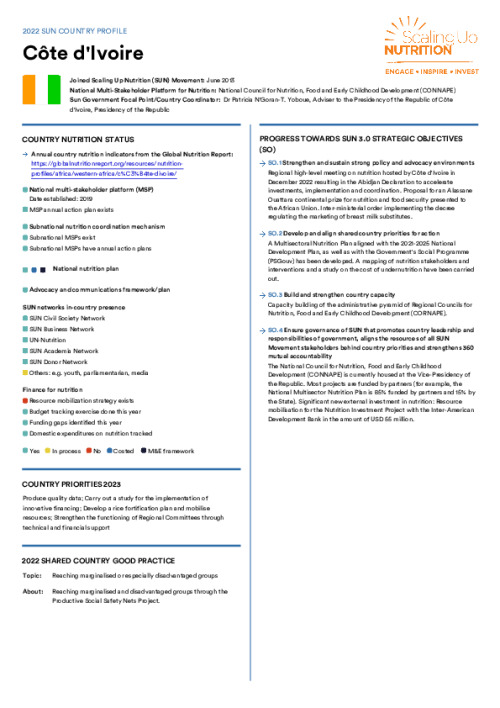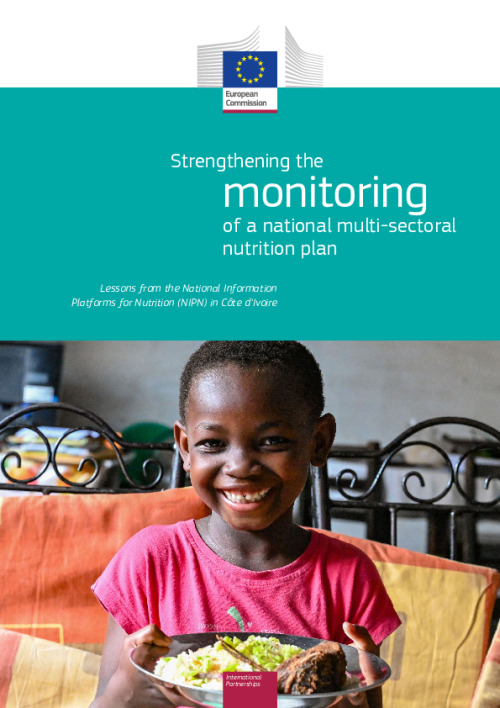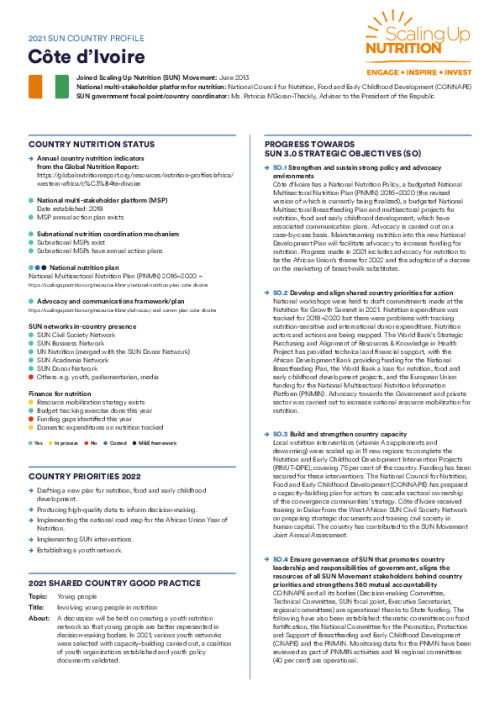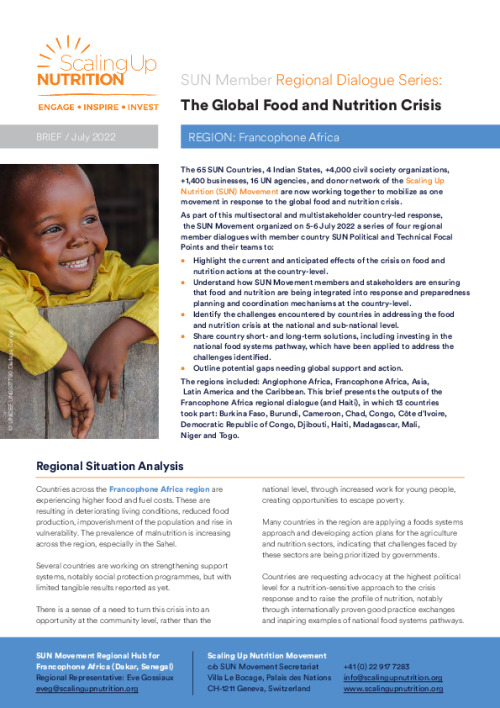
Côte d'Ivoire
Joined Scaling Up Nutrition (SUN) Movement
June 2013
National multi-stakeholder platform for nutrition
National Council for Nutrition, Food and Early Childhood Development (CONNAPE)
Sun Government Focal Point/Country Coordinator
Dr Patricia N'Goran-T. Yoboue, Adviser to the Presidency of the Republic of Côte d'Ivoire, Presidency of the Republic
Country nutrition status 2022
- Yes
- In process
- No
- Costed
- M&E framework
National multi-stakeholder platform (MSP)
National nutrition plan
Advocacy and communications framework/plan
Subnational nutrition coordination mechanism
SUN networks in-country presence
Finance for nutrition
Country priorities 2022
Progress towards SUN 3.0 Strategic Objectives (SO)
Regional high-level meeting on nutrition hosted by Côte d'Ivoire in December 2022 resulting in the Abidjan Declaration to accelerate investments, implementation and coordination. Proposal for an Alassane Ouattara continental prize for nutrition and food security presented to the African Union. Inter-ministerial order implementing the decree regulating the marketing of breast milk substitutes.
A Multisectoral Nutrition Plan aligned with the 2021-2025 National Development Plan, as well as with the Government's Social Programme (PSGouv) has been developed. A mapping of nutrition stakeholders and interventions and a study on the cost of undernutrition have been carried out.
Capacity building of the administrative pyramid of Regional Councils for Nutrition, Food and Early Childhood Development (CORNAPE).
The National Council for Nutrition, Food and Early Childhood Development (CONNAPE) is currently housed at the Vice-Presidency of the Republic. Most projects are funded by partners (for example, the National Multisector Nutrition Plan is 85% funded by partners and 15% by the State). Significant new external investment in nutrition: Resource mobilisation for the Nutrition Investment Project with the Inter-American Development Bank in the amount of USD 55 million.


